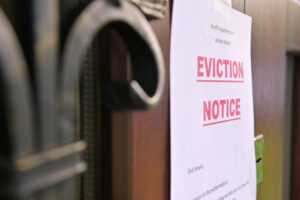In addition to a monthly mortgage payment, owning your own home involves a number of additional costs and expenses you need to plan for in your budget. Some of them will be recurring expenses, others you won’t see coming – but you’ll need to be prepared for them nonetheless.
Recurring Expenses
Utilities
If you’re moving into a larger space than you're used to, remember it means your utility bills will be larger as well, particularly the heating and cooling costs. If your utility company offers it, consider going on a plan that "equalizes" your bills over the course of the year so you're always paying close to the same amount. It will make budgeting for utility expenses much easier.
HOA
If you live in a neighborhood with a homeowner's association, there will be monthly or annual HOA membership fees. There may also be fines assessed if you violate HOA rules, so be sure to learn what they are and stick to them to avoid paying the price.
Homeowners Insurance
Homeowners insurance protects your home, its contents, and other assets in case of fire, theft, accident or other disaster (certain geographical areas may require additional coverage for events such as floods or earthquakes).
Your homeowners insurance should cover the cost of rebuilding and refurnishing your home. Most policies allow you to pay annually or month-to-month. You may be able to save a bit by paying for a full year up-front. Plus, you won't run the risk of coverage lapsing due to a missed monthly premium payment.
Property Taxes
If it's not already included in your house payment, you will receive an annual bill for property tax, which is determined by the county in which you live, and based on the assessed value of your home. It's a good idea to save a little bit throughout the year to go toward your property taxes, so you don't have to come up with the full amount all at once.
Long-Term Expenses
Routine Maintenance and Repairs
Every homeowner must plan to perform routine repairs and maintenance. These expenses increase as homes age, but even new homes require regular upkeep to ensure they increase in value over time. In fact, neglecting basic home repair and maintenance can actually cause homes to decrease in value.
On average, homeowners spend one to four percent of the total value of their homes on maintenance and repair each year. Some years you'll spend more, some less, but you'll always spend something.
We recommend setting up a savings account devoted to home maintenance and contributing to it regularly to ensure you have the funds ready when you need them.
Emergency Repairs
In addition to routine maintenance, every homeowner will eventually face a major repair or replacement, such as an air conditioning unit or hot water heater. This is when having emergency savings ready comes in really handy.
We recommend establishing an emergency savings account (separate from the home maintenance account) that's strictly reserved for catastrophic events, including major home repairs. By having emergency savings as a safety net, you can avoid going into debt by having to charge a big-ticket item.

 Español
Español
 English
English
.png)


